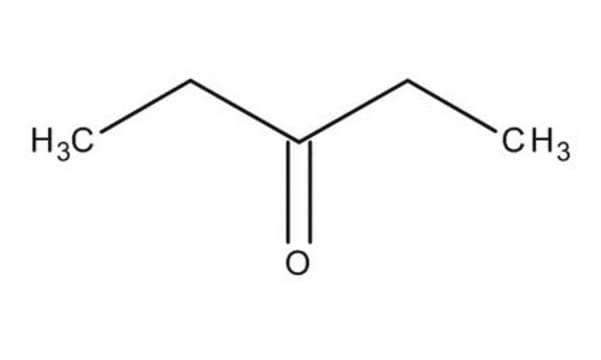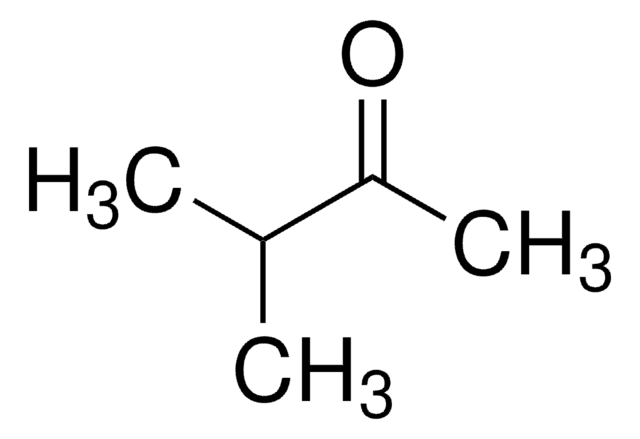About This Item
Recommended Products
biological source
synthetic
vapor density
3 (vs air)
vapor pressure
20 mmHg ( 28 °C)
28.1 mmHg ( 20 °C)
Assay
≥99%
form
liquid
autoignition temp.
845 °F
refractive index
n20/D 1.392 (lit.)
pH
6.2 (20 °C, 50 g/L)
bp
101.5 °C (lit.)
mp
−42 °C (lit.)
density
0.813 g/mL at 25 °C (lit.)
application(s)
flavors and fragrances
Documentation
see Safety & Documentation for available documents
food allergen
no known allergens
Organoleptic
ethereal
SMILES string
CCC(=O)CC
InChI
1S/C5H10O/c1-3-5(6)4-2/h3-4H2,1-2H3
InChI key
FDPIMTJIUBPUKL-UHFFFAOYSA-N
Looking for similar products? Visit Product Comparison Guide
General description
Disclaimer
Signal Word
Danger
Hazard Statements
Precautionary Statements
Hazard Classifications
Eye Irrit. 2 - Flam. Liq. 2 - STOT SE 3
Target Organs
Central nervous system, Respiratory system
Supplementary Hazards
Storage Class Code
3 - Flammable liquids
WGK
WGK 1
Flash Point(F)
44.6 °F
Flash Point(C)
7 °C
Personal Protective Equipment
Certificates of Analysis (COA)
Search for Certificates of Analysis (COA) by entering the products Lot/Batch Number. Lot and Batch Numbers can be found on a product’s label following the words ‘Lot’ or ‘Batch’.
Already Own This Product?
Find documentation for the products that you have recently purchased in the Document Library.
Customers Also Viewed
Our team of scientists has experience in all areas of research including Life Science, Material Science, Chemical Synthesis, Chromatography, Analytical and many others.
Contact Technical Service













